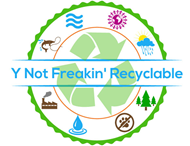[ad_1]
Research by think tank Carbon Tracker Initiative has shown nearly US$640 billion of investment in coal-fired power capacity worldwide is at risk because it is cheaper to generate electricity from new renewable energy.
Institutional investors are increasingly withdrawing from fossil fuel companies due to the risk their assets will become stranded as tougher carbon emissions targets discourage their use and renewable energy becomes even cheaper.
 Reuters Newsagency reports the study examined the economics of 95 per cent of coal plants which are operating, under construction or planned worldwide.
Reuters Newsagency reports the study examined the economics of 95 per cent of coal plants which are operating, under construction or planned worldwide.
The study found building new wind and solar plants will soon be cheaper in every major market across the globe than running existing coal-fired power stations, and raises fresh doubt about the medium-term viability of Australia’s $26bn thermal coal export industry.
 Globally, 499 gigawatts (GW) of new coal power capacity is planned or under construction with an investment cost of US$638 billion.
Globally, 499 gigawatts (GW) of new coal power capacity is planned or under construction with an investment cost of US$638 billion.
More than 60 per cent of global coal plants are currently generating electricity at a higher cost than could be produced by building new renewable energy.
By 2030 at the latest, it will be cheaper to build new wind or solar capacity than continue operating coal in all markets, the report said.
 The capital recovery period for new investments in coal capacity is usually 15 to 20 years, making these investments risky.
The capital recovery period for new investments in coal capacity is usually 15 to 20 years, making these investments risky.
“Renewables are out-competing coal around the world and proposed coal investments risk becoming stranded assets which could lock in high-cost coal power for decades,” said Matt Gray, co-author of the report and co-head of power and utilities at Carbon Tracker.
![]() Reuters reports according to a major United Nations report in 2018, the share of coal power in electricity generation needs to fall to under two per cent by 2050 for global warming to stay within a 1.5 degree Celsius limit.
Reuters reports according to a major United Nations report in 2018, the share of coal power in electricity generation needs to fall to under two per cent by 2050 for global warming to stay within a 1.5 degree Celsius limit.
In Japan, where Australia sells nearly half its exported thermal coal, wind power was found to cost less than new coal plants and was expected to be cheaper than existing coal by 2028.
Solar power in Japan was forecast to be a better option than new coal by 2023 and existing coal by 2026.
 Carbon Tracker said that in the European Union, 96 per cent of the bloc’s 149GW of operating coal capacity costs more than new renewable energy.
Carbon Tracker said that in the European Union, 96 per cent of the bloc’s 149GW of operating coal capacity costs more than new renewable energy.
On the whole, Europe has been reducing its dependency on coal due to higher carbon costs.
EU investment of US$16 billion is at risk on 7.6GW of new coal capacity planned.
In China, the world’s biggest coal producer, US$158 billion of investment is at risk, with 100GW of coal capacity under construction and 106GW planned.
 China has 982GW of existing coal power, and 71 per cent of this costs more to run than building new renewable energy.
China has 982GW of existing coal power, and 71 per cent of this costs more to run than building new renewable energy.
In India, US$80 billion is at risk, with 37GW of coal power under construction and 29GW planned.
Out of a total 222GW of existing coal capacity, 51 per cent costs more than new renewable energy.
The United States has 254GW of coal capacity, with 47 per cent costing more than new renewable energy.
 The report said market forces will drive coal power out of existence in deregulated markets, where renewable energy developers will take advantage of the growing price gap.
The report said market forces will drive coal power out of existence in deregulated markets, where renewable energy developers will take advantage of the growing price gap.
However, several governments continue to incentivise new coal capacity, allow the high cost of coal to be passed onto consumers, or subsidise coal operators.
The report acknowledged this trend did not necessarily mean coal power would be pushed from the market within a decade.
 It said some governments were effectively incentivising or underwriting new coal power through regulatory programs that either directly subsidised coal operators or passed the higher cost on to consumers.
It said some governments were effectively incentivising or underwriting new coal power through regulatory programs that either directly subsidised coal operators or passed the higher cost on to consumers.
However, the group found that coal power would struggle if markets were priced fairly.
It called on governments to block new coal projects and phase our existing coal plants, in part by changing regulations to allow renewable energy to compete on a level playing field.
EcoNews is an independent publication that relies on contributions from its readers.
WE’RE BUILDING A PLATFORM WITH A CLEAR FOCUS ON THE ENVIRONMENT, CULTURAL AND SOCIAL GOOD. CONTRIBUTE AND TOGETHER WE CAN MAKE AN IMPACT.
Source link
Y Not Freakin’ Recyclable Home
 Pollution Climate Change Holocene Deforestation Population Acidification Y Not Freakin' Recyclable
Pollution Climate Change Holocene Deforestation Population Acidification Y Not Freakin' Recyclable




